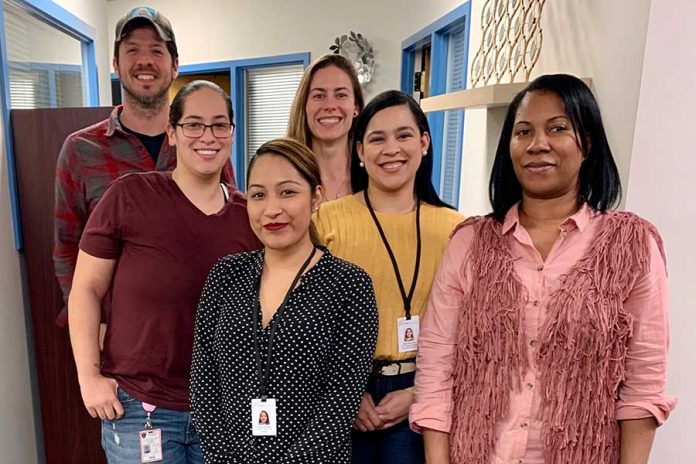

Action Wellness recently launched its third prison linkage program to help newly released prisoners reintegrate into society and get the healthcare they need. The organization’s new Linkage and Engagement After Prison program (LEAP) focuses specifically on assisting formerly incarcerated individuals struggling with Opioid Use Disorder (OUD). The Philadelphia Department of Public Health is funding the program; last fall, the department received 5.8 million dollars from the Centers for Disease Control and Prevention to curb the opioid crisis. Statewide, Pennsylvania has the third-highest rate of death by overdose in the country.
“I believe this program will have a positive impact on the high number of overdose deaths in Philadelphia,” Annie Brogan, a Department of Public Health spokesperson, said in a press release. “Returning from incarceration is hard work, especially for individuals battling opioid use disorder. Having a supportive team to help navigate life after jail has been shown to make a real difference in someone’s life.”
Ten full-time Action Wellness case managers and care outreach specialists, mostly new hires, have already begun working with returning citizens experiencing OUD and who have begun receiving Medication-Assisted Treatment (MAT) while still in prison. These staffers will connect returning citizens with community-based services to continue treatment as well as assist them with issues including housing, mental health treatment and court advocacy.
“I think it’s important because of the opioid epidemic that we’re facing and the criminalization of addiction,” said Kevin Burns, executive director of Action Wellness. “There’s such a horrible stigma around all of the stuff that we need to get past. Philadelphia has one of the highest rates of death by overdose around opioids, so that is a chance for us to really keep people alive long enough so that they can get good treatment and get into recovery.”
The City of Philadelphia website reported that in 2017, 88 percent of the city’s 1,217 overdose-related deaths were from opioids. The Pew Charitable Trusts reported similar statistics in 2016.
Although the LEAP program is open to all returning citizens regardless of background, sexual orientation or gender identity, a percentage of the clients with whom Action Wellness will work will be members of the LGBTQ+ community, Burns said.
“I think that’s true not just of opioid addiction but around addiction in general,” he said. “I think a lot of that has to do with the stigma and the struggle that LGBTQ+ people experience — the struggles around coming out and how isolating it can be, especially if your family of origin isn’t supportive of you being who you are. I think it sets up a dynamic where addiction is sort of a coping mechanism. The other thing that’s true [is that] Black and Brown people are disproportionately in jail and disproportionately affected by addiction. It’s also an opportunity for us to impact that community.”
American Addiction Centers reported that individuals who identify as sexual minorities are more than twice as likely to misuse drugs compared to their heterosexual peers. A 2018 study published in the American Journal of Preventative Medicine estimated that 9 percent of adults who identify as gay and lesbian and 12 percent of those who identify as bisexual had misused opioids within the last year, compared to 5 percent of heterosexual adults.
While the LEAP team is currently working with about seven formerly incarcerated individuals, according to Burns, they have recently received referrals for many more clients.
“[Returning citizens] have been able to get their entitlements in order and so far no one has relapsed,” said LEAP Coordinator Danielle Rivera.
“No one has overdosed since they’ve been released, and that’s what the main goal is, to prevent them from falling through the cracks of being released and having to go to their MAT providers. It’s really important to help these returning citizens because they’re at such risk; even if they’ve been behind the walls for two days, it significantly increases their chance of having a fatal overdose and we’re not in a position to allow that to keep happening.”
In order to better help formerly incarcerated people facing OUD manage their opioid use and prevent relapse, holistic programs such as LEAP are necessary, said Rand Faulkner, licensed clinical social worker and assistant director of behavioral health at Mazzoni Center.
“I think for a long time, the prescribed way for treating OUD was in a methadone clinic, with Medication-Assisted Treatment, and that was the way to do it,” Faulkner said. “I think over time we’ve discovered that [approach], while very helpful, doesn’t get to the core of reasons for using [opiates] or the trauma, or a lot of the things that keep people using — homelessness, lack of employment. I think treatment that can address multiple dimensions in an individual’s life who’s using opiates is only going to help systemically bring that person to a better, healthier place.”
Faulkner also cited the need to address OUD among LGBTQ youth populations.
“When I’m thinking of our community, young LGBTQ folks who are going to start or are already experiencing some of the traumas and the pains, [so we need to] help them process those traumas and pains in a way that doesn’t lead them to instead use an opiate.”
